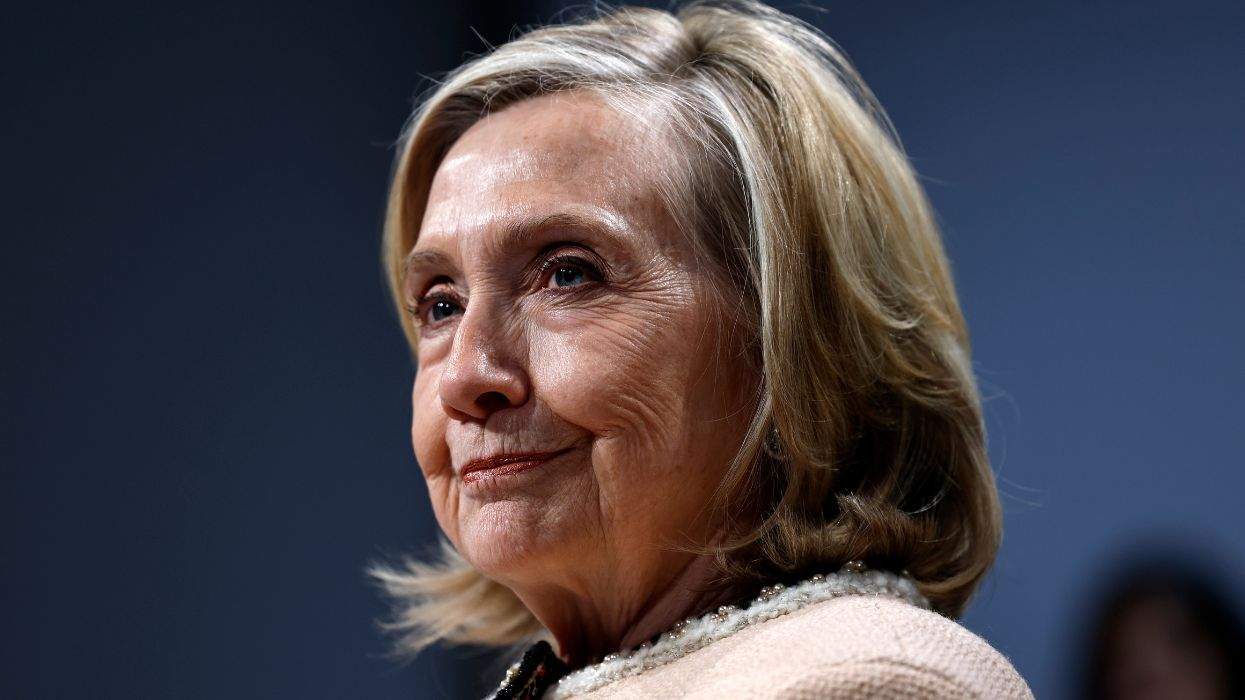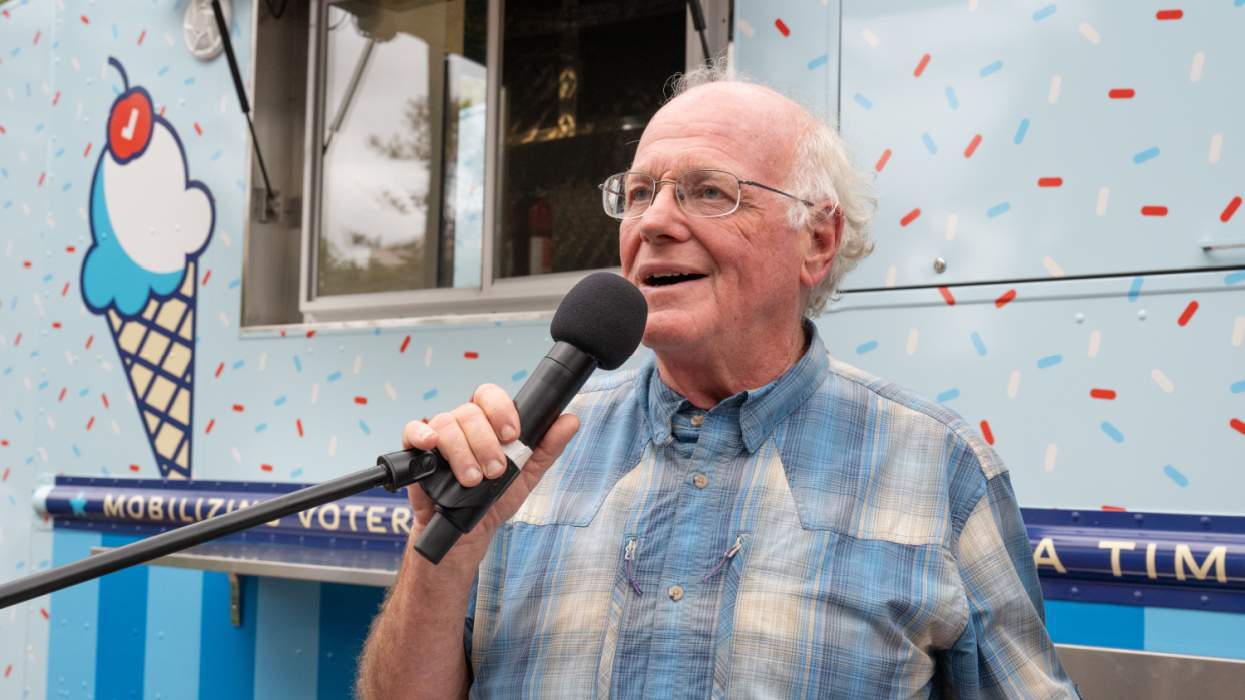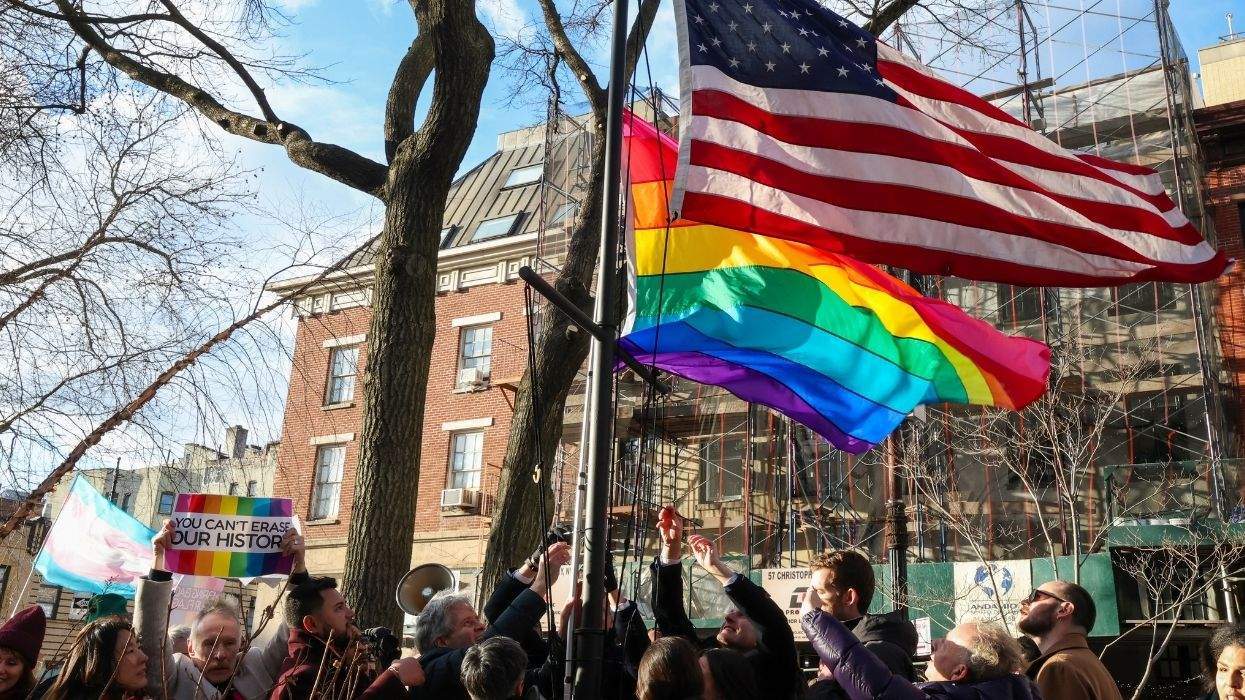Hearing its first LGBTQ+ rights case with a 6-3 majority of conservative justices, the U.S. Supreme Court definitely appeared conservative -- and sympathetic to the right to discriminate.
Fulton v. City of Philadelphia, in which the court heard oral arguments Wednesday, revolves around whether organizations that provide services for a governmental body have to comply with that government's antidiscrimination laws. The Philadelphia Department of Human Services, which operates the city's foster care system, quit using Catholic Social Services for certification of foster parents in 2018 when city officials learned the agency would not certify same-sex couples. The agency's action violated the city's law against discrimination based on sexual orientation.
Catholic Social Services and three foster parents then sued the city, arguing that the group should be able to continue to work with the city while still adhering to religious tenets against same-sex marriage. The city's action, it contends, violates its First Amendment right to free exercise of religion. The Catholic agency has lost in a U.S. district court and an appeals court, and it has now appealed to the Supreme Court.
Several of the justices seemed to agree with the agency's view, according to media accounts. "If we are honest about what's really going on here, it's not about ensuring that same-sex couples in Philadelphia have the opportunity to be foster parents," Justice Samuel Alito said, as quoted by the Washington Blade and other outlets. "It's the fact that the city can't stand the message that Catholic Social Services and the archdiocese are sending by continuing to adhere to the old-fashioned view about marriage." Another conservative justice, Brett Kavanaugh, said the city's stance was "absolutist" and "extreme."
The newest justice, Amy Coney Barrett, like Kavanaugh a Donald Trump appointee, "wasn't as harsh as some of her conservative colleagues" but "nonetheless appeared sympathetic to Catholic Social Services," the Blade reports. She envisioned a hypothetical scenario in which a city took over all the hospitals within its boundaries and sought to force a Catholic hospital to perform abortions.
Neal Katyal, a lawyer representing Philadelphia, pointed out that Barrett was theorizing about a monopoly, but the city hasn't monopolized the foster care system or put Catholic Social Services out of business. "The government somehow monopolizing a private care system -- health care system or hospital system -- that itself would raise any number of constitutional problems, and I think our intuition as to why that hypothetical sounds so horrible is because of that," he said.
Katyal said a broad ruling in favor of the Catholic group's right to discriminate against same-sex couples while still contracting with the city would enable many other types of discrimination. "Petitioners' rule would enable [a foster care agency] to exclude parents of any religion -- from Buddhist to Baptist -- and this court, because it can't second-guess the reasonableness of a belief, it opens the door to all sorts of claims ... and it radiates far beyond foster care," he said.
Chief Justice John Roberts, who is usually considered conservative but sometimes sides with liberal justices, appeared understanding of the city's viewpoint. "This is a case involving free exercise rights, but it's in tension with another set of rights, those recognized in our decision in Obergefell," the court's marriage equality decision, he said. "And whatever you think, or however you think that tension should be resolved as a matter of government regulation, shouldn't the city get to strike the balance as it wishes when it comes to setting conditions for participating in what is, after all, its foster program?"
Stephen Breyer, one of the court's liberals, noted that the city was willing to let the Catholic group offer a disclaimer about its objections to same-sex couples as long as it didn't refuse to work with them. He asked Lori Windham, an attorney representing Catholic Social Services, why the agency had a problem with this policy.
Windham, who works for Becket, a conservative legal nonprofit, replied that even with a disclaimer, Catholic Social Services would still have to "evaluate, assess, and approve" couples in relationships that went against its beliefs.
An attorney with the Department of Justice, Hashim Mooppan, argued on behalf of the federal government for the Catholic agency, claiming the city allowed exemptions from its nondiscrimination law for certain reasons, such as placing a child with foster parents of a certain race. Katyal said, however, that there had been only one instance involving race, with the city deciding that a child who'd used a slur against a certain racial group should not be placed with parents of that race.
Some of the questioning also turned on whether an agency could use its religious beliefs to justify racial discrimination, such as not placing children with interracial couples, if it is allowed to discriminate based on other factors. Windham, responding to Barrett's query on the subject, said that would not be the case, as the Supreme Court has held that "the government has a compelling interest in ending racial discrimination." Windham said that is "a far cry" from the dispute between Philadelphia and Catholic Social Services.
Breyer took strong exception to that. "I want to interrupt you right here, because the two of you [Windham and Mooppan] said this, that we should write an opinion which says discrimination on the basis of race, constitutionally speaking, is different than the discrimination on the basis of gender ... on the basis of nationality, on the basis of homosexuality," he said.
Breyer went on to ask Mooppan if that was indeed what the federal government wanted. Mooppan did not answer directly but said the court has ruled in several cases that "race is unique in this country's constitutional history and eradicating that type of racial discrimination presents a particularly unique and compelling interest."
After the arguments concluded, Philadelphia City Solicitor Marcel Pratt issued a statement saying the city "proudly respects and protects all of our residents' religious freedoms, a commitment that we hold dear," CNBC reports. "But those freedoms do not allow contractors performing a City service to choose which residents they will serve based on their sexual orientation."
The court's ruling is expected next May or June.















Charlie Kirk DID say stoning gay people was the 'perfect law' — and these other heinous quotes
These are some of his worst comments about LGBTQ+ people made by Charlie Kirk.